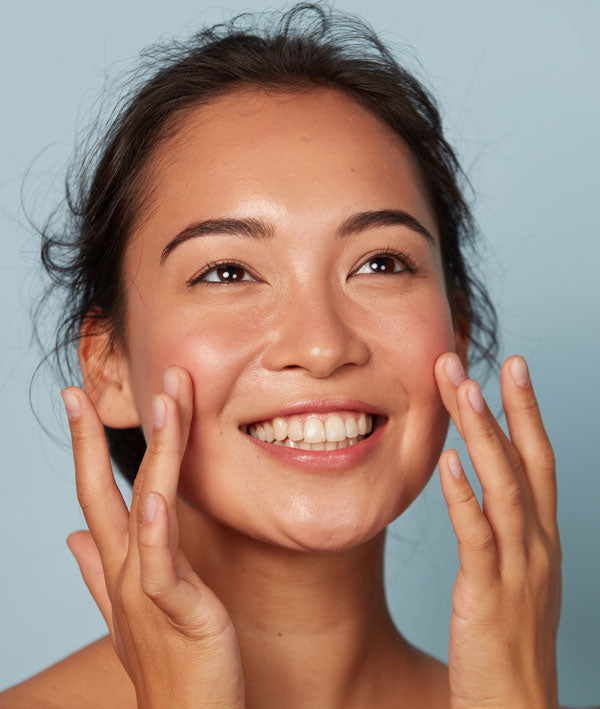If you're staring at stubborn dark spots in the mirror wondering how to even out your skin tone, you're not alone. Hyperpigmentation—those patches of skin that look darker than the rest—is one of the most common skin concerns. And while there are a lot of products that claim to help, Vitamin C continues to be one of the most trusted ingredients dermatologists and skincare lovers swear by.
Let’s break down whyVitamin C serum is such a powerhouse for dark spots and how you can make the most of it in your skincare routine.
What Causes Hyperpigmentation on the Skin?
Hyperpigmentation happens when your skin produces too much melanin, the pigment that gives skin its color. It’s your skin’s way of reacting to certain triggers. The most common ones include:
-
Sun exposure – UV rays stimulate melanin production, which can leave behind dark patches.
-
Post-inflammatory hyperpigmentation (PIH) – This happens after skin trauma like acne, bug bites, or even aggressive treatments.
-
Hormonal changes – Think melasma, which is often triggered by pregnancy or birth control.
-
Aging – As skin ages, it becomes more prone to uneven tone and spots.
No matter the cause, dark spots don’t fade overnight. But with the right tools—like Vitamin C—you can speed up the process.
How to Use Vitamin C To Reduce Dark Spots
Knowinghow to use Vitamin C for dark spots is key to seeing results. Here’s how to get started:
-
Apply it on clean skin – After cleansing and before moisturizing, apply a few drops of serum onto dry skin.
-
Use it once a day (preferably in the morning) – Vitamin C helps protect against UV damage, so it makes sense to apply it in the AM under sunscreen.
-
Be consistent – Like any active, it takes time and regular use to see results.
-
Store it properly – Vitamin C can degrade when exposed to light and air. Keep it in a cool, dark place, and make sure your product is in airtight packaging.
If you're new to Vitamin C, start with a lower concentration (around 10%) and work your way up as your skin builds tolerance.
Why Vitamin C Works for Dark Spots
Here’s the science: Vitamin C is a potent antioxidant that interrupts the process of melanin production. It specifically inhibits the enzymetyrosinase, which is essential in the melanin-making process. Fewer enzymes at work = less pigment = brighter skin over time.
But it doesn’t stop there. Vitamin C also:
-
Fades existing pigmentation
-
Helps neutralize free radicals caused by sun exposure and pollution
-
Boosts collagen production, improving skin texture and firmness
In short, vitamin C for dark spots isn't just about fading—it helps prevent new ones from forming too.
Choosing The Best Vitamin C Serum for Hyperpigmentation
Not all Vitamin C serums are created equal. If you want visible results, you need to pick the right formula. Here’s what to look for:
1. Form of Vitamin C
-
L-ascorbic acid is the most effective and well-studied form, but it can be irritating for sensitive skin.
-
For sensitive types, look for derivatives likemagnesium ascorbyl phosphate orsodium ascorbyl phosphate, which are gentler but still effective.
2. Concentration
-
Between10% and 20% is the sweet spot. Anything higher may cause irritation without adding much extra benefit.
3. Packaging
-
Look fordark glass bottles orairless pumps that protect the formula from light and air exposure.
4. Supporting ingredients
-
Vitamin E and ferulic acid help stabilize Vitamin C and boost its effectiveness.
-
Niacinamide can work well alongside Vitamin C to calm skin and further reduce pigmentation.
If you're searching for thebest vitamin C serum for dark spots, skip gimmicky marketing and focus on ingredients, packaging, and concentration.
How Long Does It Take for Vitamin C to Fade Dark Spots?
Here’s the honest truth: patience is part of the process. If you’re wonderinghow long does it take for dark spots to fade with Vitamin C, the answer varies depending on the depth of pigmentation and how consistently you use the product.
Generally, you can expect to see visible improvement in4 to 12 weeks of daily use. Deeper pigmentation may take longer. Results also depend on how well you protect your skin from the sun—skipping sunscreen can undo progress.
Keep in mind that Vitamin C works gradually. It's not a quick fix, but it's effective with time and commitment.
Adding Vitamin C Into Your Skincare Routine
Incorporating Vitamin C doesn’t require an overhaul. Here's a simple routine to make it work:
Cleanser– Use a gentle, non-stripping cleanser to prep your skin.
Toner (optional) – A hydrating toner can help balance your skin and prep it for actives.
Vitamin C serum – Apply 2–4 drops to your face and neck.
Hyaluronic Acid serum – a hydrating serum to plump the skin.
Moisturizer – Seal in the serum with a nourishing moisturizer.
Sunscreen (AM only) – Always finish your morning routine with SPF 30 or higher.
If you’re using exfoliating acids or retinoids, alternate them with Vitamin C or use them at night to avoid irritation. You can also layer Vitamin C under those ingredients if your skin can tolerate it—but always patch test.
And if you're still wonderinghow to get rid of dark spots on face without overwhelming your skin, Vitamin C is a solid, low-effort, high-reward addition that fits into just about any routine.
Vitamin C is a multitasking MVP when it comes to fading hyperpigmentation. It's backed by science, trusted by pros, and effective when used consistently. From helping prevent future spots to brightening the ones you already have, Vitamin C earns its place in your lineup.
If you’re ready to brighten up and even out your complexion, it might be time to reach for that Vitamin C serum. Just remember: the best results come with patience, consistency, and sunscreen.






